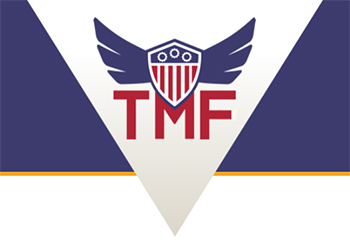
Setting up For IT success: Enhancing the impact of the Technology Modernization Fund

Last week, the Office of Management and Budget issued new guidance regarding priorities and processes for agencies to submit proposals for the Technology Modernization Fund that support the American Rescue Plan Act. The guidance provides important insights on how the TMF can be leveraged to address mission objectives.
The TMF’s allocation of $1 billion under the ARP links technology investment to the broad set of modernization needs in agencies, with the OMB guidance focused on four critical areas that also connect with other key funding priorities in the ARP:
- Modernizing high-priority systems – reinforcing investments in “high-value assets” that are critical to agency missions that address numerous ARP priorities
- Cybersecurity – the ARP provides $650 million to the Department of Homeland Security for cyber priorities
- Public-facing digital services – the ARP provides $150 million to the General Services Administration for citizen-service facing technology
- Cross-Government Collaboration/Scalable services – the ARP provides $200 million to the U.S. Digital Service for systems modernization
The OMB guidance also addresses the statutory requirement for repayment of TMF funds within five years, responding to numerous requests for flexibility in repayment so that more agencies will tap into the funds. To address these concerns, the TMF Board is requesting proposals from agencies for full, partial or minimal payback of TMF funds. Moreover, OMB is moving at rapid pace to review investment candidates and field promising practices. In the new guidance, the TMF Board asks that proposals submitted by June 2 to receive expedited consideration; the Board will continue to evaluate proposals on a rolling basis thereafter.
The four priority areas above are both distinct investment options and interconnected technology domains. Accordingly, they suggest the need for agency proposals and Board reviews that are both specific to each area and common across all four. For example, modernizing systems necessitates reviewing and improving the security posture of those assets; the public that accesses digital services relies on secure and modernized applications for good performance. Cross-agency services should embrace all of these elements.
Similarly, the ARP’s investments in TMF and related technology domains should be considered in terms of how these investments connect to current agency programs, platforms and applications. The federal government will likely spend close to $100 billion on technology in 2021, if that total includes both new ARP funds and potential additional spending under the American Jobs Plan and American Families Plan (should they be enacted). If the TMF and other ARP investments are not viewed in this larger -- aka, 50-fold+ -- spending context, they may be implemented as “one-off” projects that embrace innovation but do not scale to promote broader technology modernization.
In addition, effective TMF projects should start with an assessment of business processes, and a realignment of those processes to center around user needs and expectations. Simply modernizing technology, without also modernizing how users interact with services provided by that technology, will not produce new systems that achieve TMF objectives for improved customer experience and increased customer satisfaction.
A strategy of linking the criteria and investment portfolio from the TMF to drive improvements in related investments across the portfolio would involve several elements, including:
- Tying new investments to the agency’s overall strategic and IT plans
- Identifying a funding stream that connects TMF projects with the agency’s 2022 and 2023 budget planning and execution proposals.
- Connecting criteria for the TMF and similar modernization funding streams to contract work supporting the overall $100 billion IT spend -- and supporting the $650 billion spend on service contracts overall, a number also likely to increase this year -- thereby accelerating impacts across this larger spending base.
- Encouraging cross-agency technology and shared service initiatives to operate in a manner consistent with the selection criteria identified under the TMF.
- Focusing specific investments around goals for business process improvement and customer satisfaction.
During the execution of a past technology reform initiative, “Project Quicksilver,” OMB developed a strategy for how 24 cross-cutting e-government initiatives could “pull forward” the rest of the IT spend (roughly $60 billion at that time) as part of the President’s Management Agenda launched in 2001. That framework was supported by the then-newly developed Federal Enterprise Architecture, and amplified through emerging shared services “lines of business” that included financial management, human resources, grants, and later cybersecurity – all areas that continue as shared services LOBs today.
A similar “whole of government strategy” can help OMB, GSA and the agencies work individually and collectively to ensure that innovative projects awarded under the TMF and related technology lines in the ARP will have a greater impact than what could be realized at the individual project level. Such a connection to the overall IT portfolio helped contribute to the success of the 2001 PMA, elements of which still exist (like the shared services lines of business and e-government initiatives including Benefits.Gov, Grants.Gov and Regulations.Gov). Conversely, innovations lacking a connection to longer-term strategy and priorities have often failed to last beyond the tenure of the initial project period.
Over the next several weeks, we will address each of the four areas set out as priorities in OMB’s guidance, as well as repayment considerations. We hope that these posts will spur additional comment and dialogue that can support the government in driving broad and sustainable implementation of the TMF.



